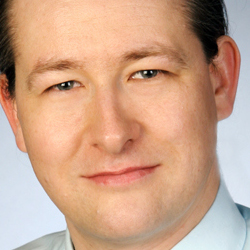Daily Melee: paid people within Free Software initiatives - How they tick, how to keep them and the art of behaving if you are one.

Bernhard E. Reiter holds a Diplom in Applied System Science and an MSc in Geography. 2001 he co-founded the FSFE,
now serving as Deputy Coordinator for Germany. Intevation was co-founded by Bernhard in 1999, making him a Free Software professional. Bernhard is on Kolab Systems's board of directors. As developer, consultant and coordinator he has worked on many Free Software product, e.g. on KMail's S/MIME support, the Kolab Groupware Solution and Kontact Touch. While using KDE now, Bernhard had been using GNOME, IceWm and Fvwm2 for many years. He lives in Osnabrück, Germany.
Any software initiative like GNOME and KDE has paid and non-paid contributors within their community. Often this is percieved as a problem. While it is true that those people might come from different corners, there is a good chance to make them work together. We cannot miss it if we want the Free Software desktop to succed further. Too much boring and hart work lies on the way that we could do it without paid professionals. Still having non-paid community people is an absolute must, as they keep your feet on the ground.
This talk will explore example behaviour of both sides of the paid work for Free Software, to help understand the fellow contributor. It gives hints how to behave as a professional who shortly dips into an initiative and to the community how to deal with such folks. Often professionals come in with much more hours per day for a short time and then drop off the planet again. In the daily communication they will behave with different patterns and tend to read less about what is going on outside of their focus.
Talking about this will soon lead to the question: How much commercial Free Software do we need? Won't it destroy the spirit, if we have to much of it? For-profit companies will work for who pays. This means that the development of quite a few high profile Free Software products is already controled by large corporate users. There is a bold solution: We desktop users must pay, so we get back control. And this is how to keep professionals: Allow them to earn money. After all, we need each other and the Free Software desktop needs us.




















